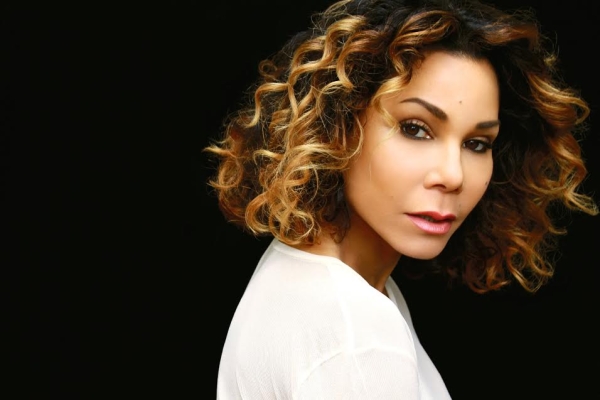Daphne Rubin-Vega Explores Sexual Boundaries in Latino Culture as She Steps Into Los Monólogos de la Vagina
Eve Ensler's groundbreaking episodic play The Vagina Monologues has moved back into its original off-Broadway home at the Westside Theatre. This time, however, the production is completely in Spanish. Los Monólogos de la Vagina is modeled after a currently running Mexico City production, now in its 14th year, and helmed by Mexican director Jaime Matarredona. As in its English iteration, Los Monólogos deals with various aspects of the female experience.
Born in Panama, two-time Tony nominee and upcoming Los Monólogos de la Vagina headliner Daphne Rubin-Vega grew up speaking Spanish as a first language, but she admits that it can be hard to stay in practice. Nevertheless, the Rent star explained to TheaterMania that she jumped at the chance to participate in this production because of her respect for Ensler, appreciation for Ensler's anti-violence-against-women movement, and interest in learning new names for "la vagina."

Have you ever performed in The Vagina Monologues before?
I've never done The Vagina Monologues before, and I've never performed in Spanish before. This is a first on both fronts. I missed the last round of Vagina Monologues, so when I got this offer, it was such a reflexive yes that I didn't even pause to think. It was like my gut said yes.
Why did you want to be a part of it so badly?
Because I have tremendous respect and admiration for Eve Ensler…and V-Day, which helps educate young women against violence toward women, particularly young ones. So that's important to me. And it's very entertaining at that. It's very cathartic, and it's in Spanish, and… being Latina, we have our own sexual boundaries that just sort of they have their own way.
Are you nervous about performing in Spanish?
I said yes, and then I got like oh my god, what do you think you're doing? And then I just sort of looked at it, and it's just about getting my tongue back into it….I'm getting less terrified. It's not terribly, terribly unlike the idea of riding a bike.
Was Spanish a first language for you?
Yeah, it actually was. [Growing up] whenever I wanted something, like, "Mom, can I have? Can I go? Can I get?" [My mom] would say "Como? Como?" And she would make me say it in Spanish. It was so annoying, and she used to say exactly what I say to my kid now, "Un dia me vas agradecer." It's like, "You're gonna thank me one day."
Had you seen the Spanish version of Vagina Monologues before?
I saw the Mexican Vagina Monologues and it's just like, there are so many Latin countries that say p*ssy differently. So it's like, whoa, I didn't know that that's what that meant. It's comical too, all the incongruous monikers for vagina. They usually have to do with shells and fruit and stuff. It's pretty funny.
Why do you think The Vagina Monologues is still important?
It's the education of how we can use words to take power away from ourselves…or to give ourselves power. I think that makes it important.
Why does this Spanish-language production belong in NYC?
I think in the Latino culture, talking about vaginas is still laced with taboo — I mean in any culture, but particularly in Latino culture…I'm a big advocate of getting people who don't usually go to the theater to go to the theater. And I hope that we can achieve that. And [for them] to relax and be comfortable — to actually go and not see some piece that they don't relate to. This is absolutely for women and relatable.











